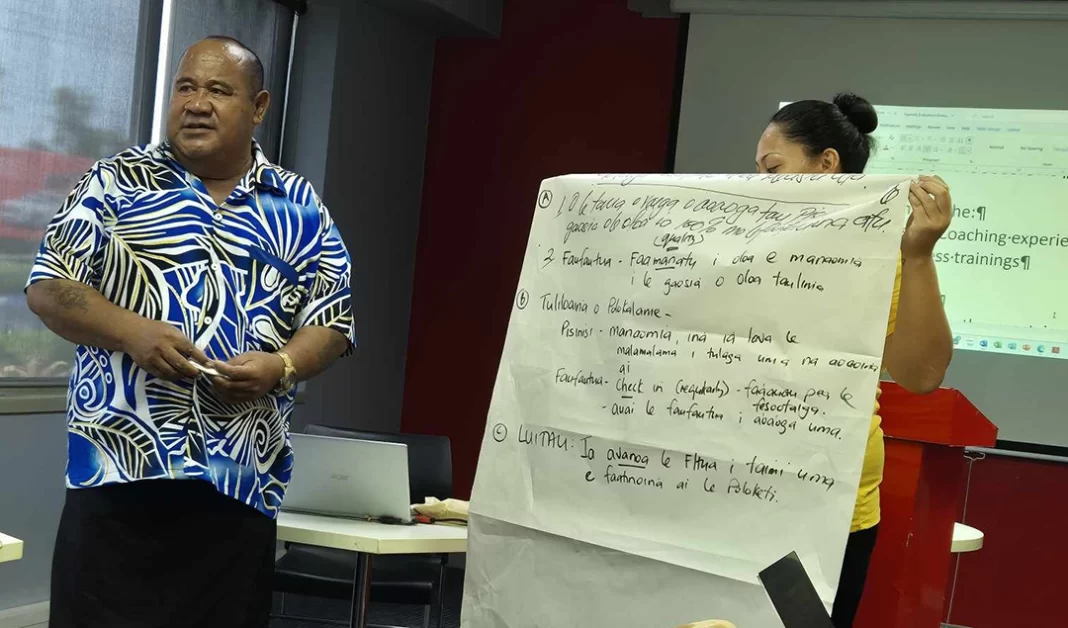The six recipients of the Fatu Toa Seed-Funding of the Samoa Victim Support Group and the UN ESCAP Project for the Nofotane Women, have completed the Program’s Impact Evaluation Workshop.
Held at the Vodafone Conference Room Maluafou, the workshop marks the fourth segment of the UN ESCAP Business Development Project in partnership with SVSG. The session provided a platform for the awardees and their mentors to reflect on their Mentorship and Coaching experiences. Additionally, the workshop also offered an opportunity for the recipients to share the impacts of the ESCAP Business Development program on their small business initiatives.
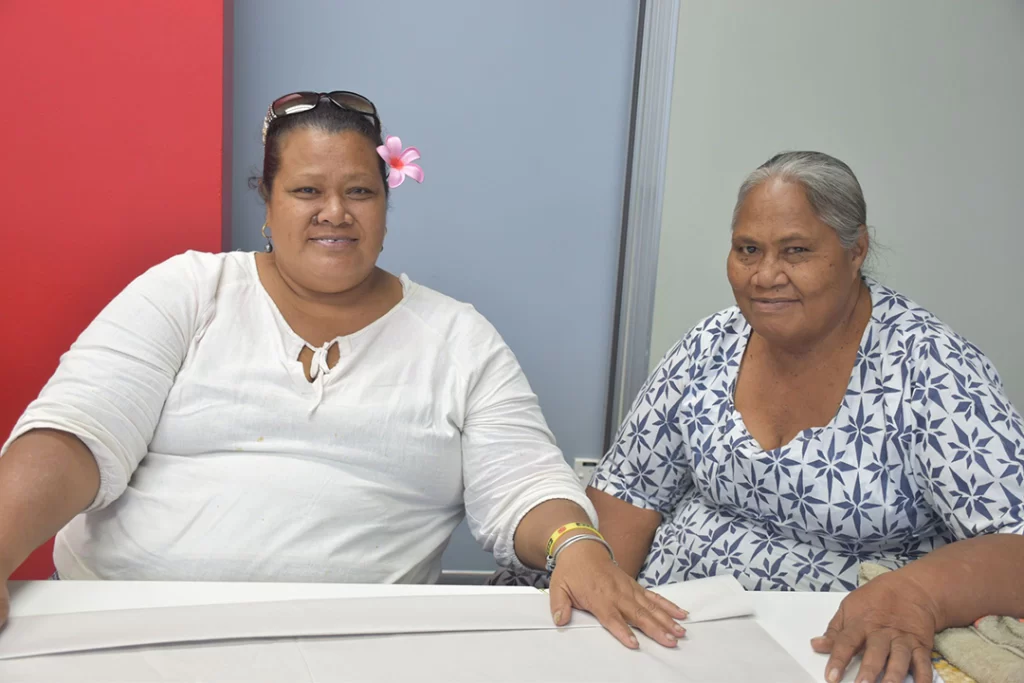
Niuula Tusipa who has been part of the Nofotane Program since 2021, made the trip from Savaii to be part of workshop, demonstrating her commitment to learning and completing the UN ESCAP program. She spoke of her eagerness to impart her knowledge to the women of her Church Relief Society. “I’m eager to organise a workshop to teach my fellow Relief Society members how to craft items that can provide financial support. The insights I’ve gained form this program is invaluable, and I’m keen to share them, potentially aiding other women who may be hesitant to seek help.” she embarked.
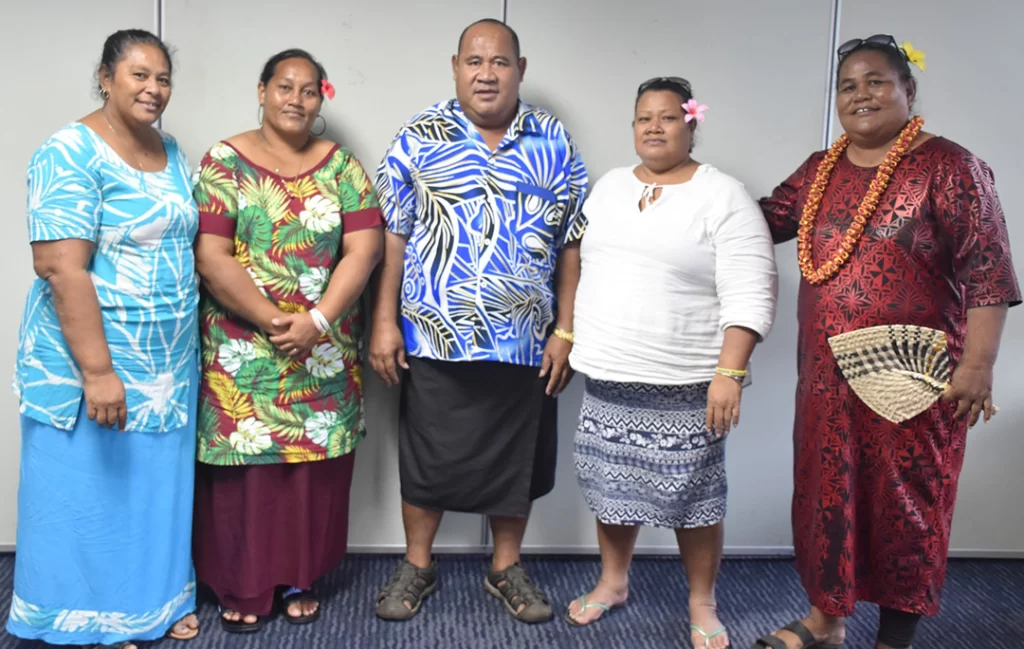
In conversation with Mika Finau, the widower of one of the registered Nofotane Women, he shared on how the Seed Funding enabled him to buy assets as start up capital for his business inititative with the children. “The Fatu Toa Seed Funding has enabled me to purchase the necessary tools and equipment such buffering machine and polisher for my craftwork. It makes crafting work much easier and safer.” He also emphasised the importance of product quality, recognising that continuous improvement is the key to reaching more markets. “The Business Training activity has taught me the value of quality and with these new tools, I am better equipped to continue improving the quality of my crafts.”
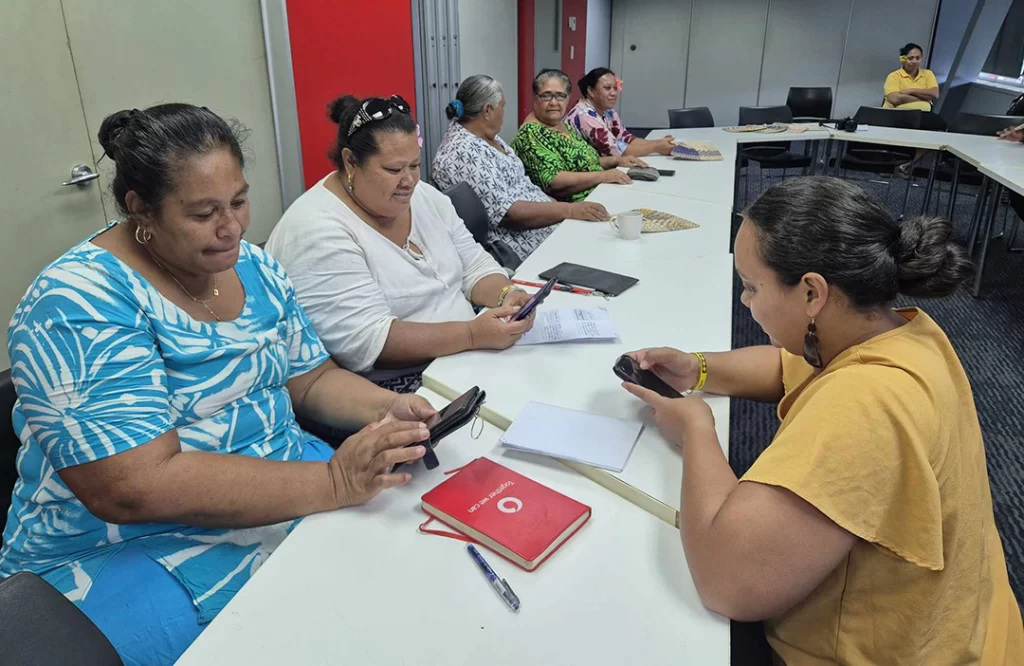
Fa’alotoina Siitia, one of the Star Fatu Toa Awardees, voiced the challenges she faces “The lack of customer traffic at the inland area of our village where we live, has led us to scout for locations along the main road, where increased vehicle and foot traffic could boost exposure to our products”, she stated. “The challenge we now face, is the absence of available land or space along the roadside. Our plan is to request permission from a roadside family to set up our stall on their property.”
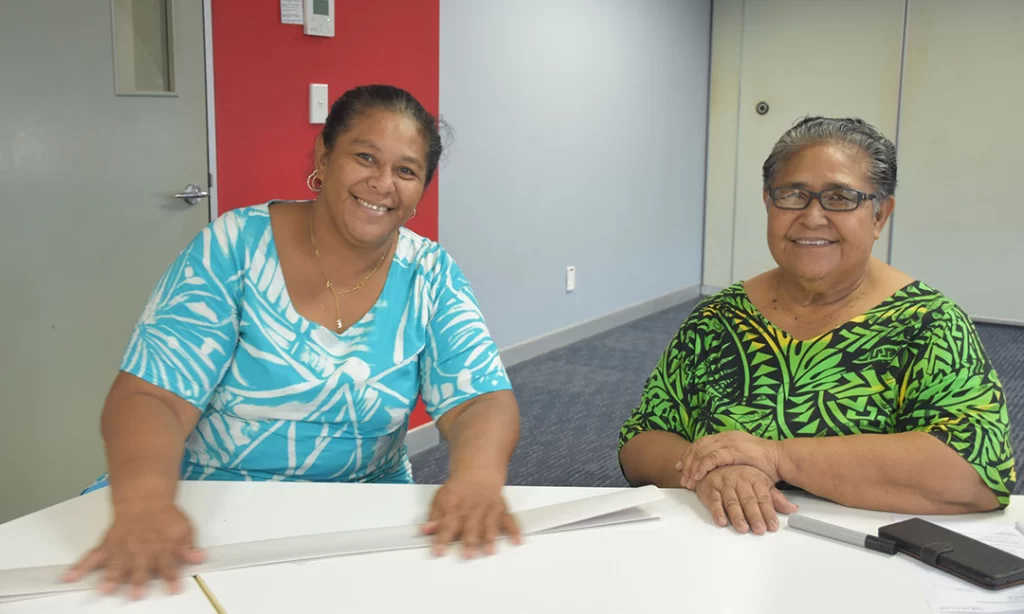
Siliniu Lina Chang, President of SVSG, reflected on the Impact Evaluation Workshop. “In every SVSG project, we prioritise evaluations to ensure the lessons imparted are meaningful and beneficial for the participants and well as for SVSG moving forward. It is therefore encouraging to hear from the recipients and their mentors about the challenges, the lessons learnt as well as some form of best practice initiated from the women, on how shared learning of economic empowerment is scaled up to reach more women in the rural areas of Upolu and Savaii.”
Background Information:
SVSG is working to strengthen the business skills of nofotane women entrepreneurs through a project funded by the United Nations Economic and Social Commission for Asia (UN ESCAP).
Titled: The SVSG/ESCAP Nofotane Business Development Training, the Project’s goal is to economically empower 100 current or aspiring Nofotane woman entrepreneurs from remote or rual areas of Samoa, by providing them with critical skills for business sustainability.
The Project is supported by ESCAP’s Catalysing Women’s Entrepreneurship (CWE) programme, funded by Global Affairs Canada, as part of the programme’s efforts to enhance the economic empowerment of rural and remote indigenous women entrepreneurs.




